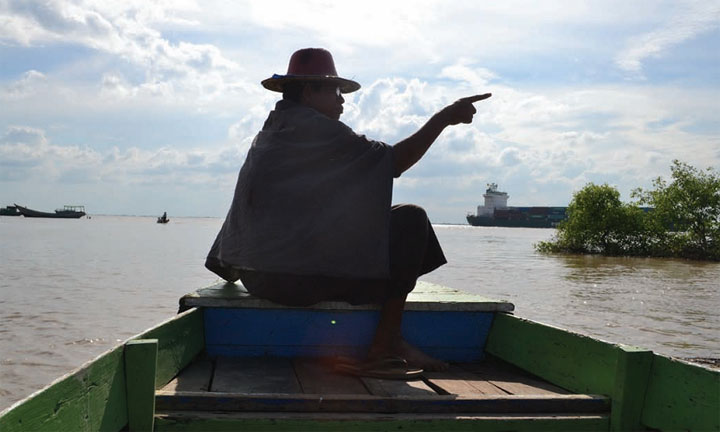Although no compensation has yet been paid to villagers whose land was confiscated to make way for a huge industrial zone and deep-sea port facility in Thilawa, a port 25 km southeast of Yangon, an environmental impact assessment (EIA) is currently being carried out.

Win Naing Tun, the director of the Resource and Environment Myanmar Co Ltd, which is directly involved with performing the assessments, said that the EIA began on March 29 and is scheduled to take seven months during which time they will undertake biodiversity assessments, noise assessments, air and water quality tests, and an assessment of road infrastructure in the area.
He said that following the EIA, a social impact assessment (SIA) will be implemented, as well as a health impact assessment (HIA), before an environmental management plan (EMP) is drawn up. Ultimately, he said, a final report will be submitted to the Ministry of Environmental Conservation and Forestry.
The relevant Myanmar authorities will cooperate with Nippon Koei, a Japan-based firm mainly engaged in the construction consulting business; together, they will perform the duties of the assessment processes, said Win Naing Tun, adding that no budget for the assessments has yet been calculated.
He said that the EIA, SIA and HIA processes will show the necessary transparency in initiating the Special Economic Zone (SEZ).
No less than 2,665.39 acres of land in Thanlyin Township and 4,233.19 acres of land in Kyauktan have been confiscated to make way for the project.
Myanmar presidential adviser U Myint, the Japanese Ambassador, and officials representing the Japan International Cooperation Agency met with Thilawa residents on March 22 when they promised that they would provide compensation for confiscated lands and arrange for relocations.
However, residents say they are still waiting.
The first stage of the 2,400-hectare (5,930-acre) SEZ is scheduled for completion in 2015. The first stage includes the construction of automobile plants and electronics factories while the following stage will include building garment and food factories.


